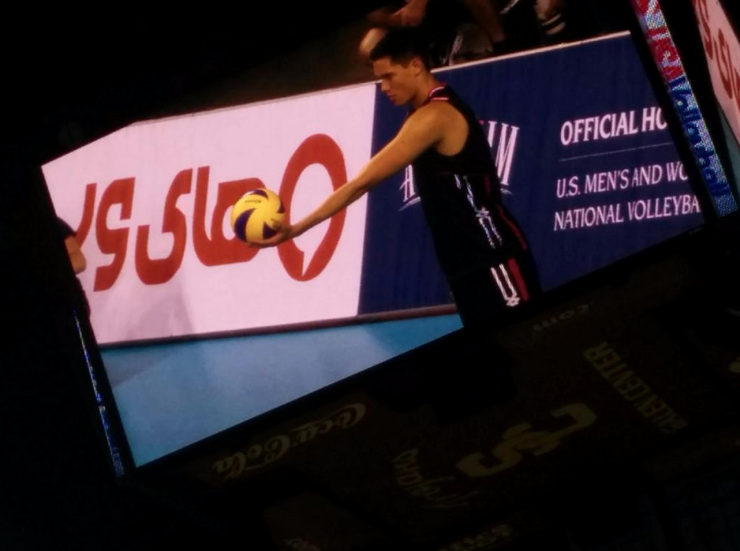An Iranian ISP Goes to College

Over the weekend Collin Anderson, of Sanction Law Podcast Episode 3 fame, alerted us to the image above. The photo was apparently taken on May 30 at the FIVB Volleyball Men’s World League 2015 U.S.-Iran match at the University of Southern California. The Farsi advertisement you are seeing is for HiWEB (های وب), a.k.a. Dadeh Gostar e Asr e Novin, one of Iran’s largest internet service providers. Not with out cause, Collin wondered if someone forgot to read up on their Iranian Transactions and Sanctions Regulations (“ITSR”).
How is it legal for an Iranian ISP, @hiweb_official, to be advertising at USC’s arena right now? cc: @youbsanctioned pic.twitter.com/ydzXXVnlNU
— Collin Anderson (@CDA) June 1, 2015
While it’s impossible to say for certain whether we’re looking at a sanctions violation without knowing the full history of how an Iranian advertisement ended up on the court at the Galen Center, there are a few things to consider.
Under 31 C.F.R. § 560.210(c), the exportation or importation to or from any country of information or informational materials is exempt from the ITSR. This is due to the so called “Berman amendment,” which added language to the International Emergency Economic Powers Act (“IEEPA”) at 50 U.S.C. § 1702(b)(3), removing the President’s authority to regulate “information or informational materials, including but not limited to, publications, films, posters, phonograph records, photographs, microfilms, microfiche, tapes, compact disks, CD ROMs, artworks, and news wire feeds ” under that act.
However, § 560.210(c)(2) states that the exemption does not “authorize transactions related to information or informational materials not fully created and in existence at the date of the transactions, or to the substantive or artistic alteration or enhancement of informational materials, or to the provision of marketing and business consulting services” (emphasis added).
So does a banner advertising an Iranian ISP fall within the information/informational materials exemption or should we consider it, or rather the actions necessary to place the advertisement, a prohibited marketing service?
It seems likely that HiWEB sponsors the Iranian national volleyball team and the banner was either imported into the United States by the team or placed there at the behest of the team. Any sort of agreement between HiWEB and a U.S. person seems unlikely, though given the iBridges conference set to take place in Berlin, you never know.
If this is the case, OFAC’s own guidance leans towards the absence of any violation. In a November 25, 2003 guidance on the travel exemption at § 560.210(d), OFAC touched upon the permissibility of advertisements:
“The Regulations would prohibit advertising-related transactions undertaken at the behest of a person or entity in Iran, unless the information or informational materials exemption applies. To fall within the scope of the information and informational materials exemption, such transactions must be limited to the direct dissemination of copy-ready materials.”
Likewise, Frequently Asked Question #348 states “certain copy-ready advertising materials are exempt from the prohibitions of the ITSR to the extent they qualify as information or informational materials pursuant to 31 C.F.R. § 560.210(c).”
The photo above pretty clearly depicts a “poster,” which is defined as information/informational materials under 31 C.F.R. § 560.315. Given the treatment of “copy-ready” advertising materials in the various guidance, it’s a good bet no violation occurred. So rest easy USC, you’re probably in the clear.


